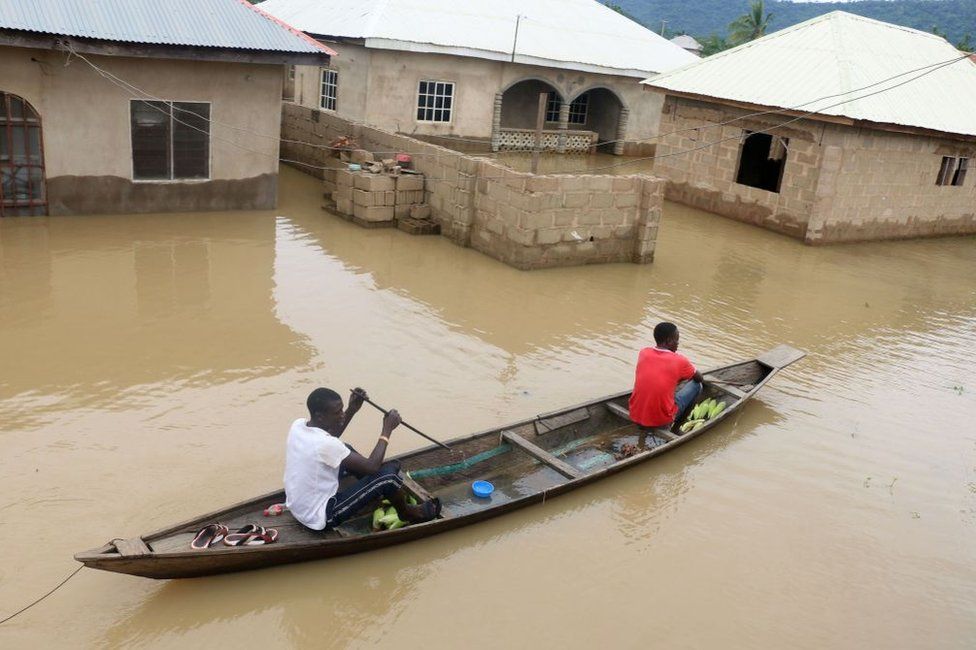Estimated reading time: 3 minutes
The annual specter of flooding has once again cast a long shadow over Nigeria, prompting NEMA and affected states to devise rescue strategies.

The Director-General of the National Emergency Management Agency, Zubaida Umar, had directed the zonal directors of NEMA to work with State Emergency Management Agencies in prepositioning rescue equipment for immediate deployment in the event of flood in their various areas of operations.
Umar, who gave the directive at a meeting in Abuja, also ordered the zonal directors to report these activities to the Emergency Coordination Centre that has been opened at NEMA headquarters in the Federal Capital Territory.
A statement issued by the Head of the Press Unit at NEMA, Manzo Ezekiel, said the DG convened the meeting to strengthen flood response and operational readiness of the agency for disasters across the country.
The statement read in part, “In her remarks, Umar directed the zonal directors to strengthen synergy with the SEMAs in prepositioning rescue equipment and facilities available for immediate deployment in the event of flood in their various areas of responsibilities and report same to the Emergency Coordination Centre that has been opened at NEMA headquarters in Abuja.
“Moreover, she harped on the imperatives for timely response to save lives and property, adding that rapid assessments must also be conducted of flood incidents to determine any further action to be taken towards supporting the affected persons.”
This recurring disaster, while a testament to the nation’s vulnerability to climate change, also highlights systemic failures in disaster management and preparedness.
While the immediate focus is on rescuing those in distress, it is imperative to delve deeper into the root causes of these perennial floods. Urbanization without adequate infrastructure, deforestation, and climate change are contributing factors that exacerbate the situation. The government’s response, though necessary, appears reactive rather than proactive.
It is crucial to develop long-term strategies that address these underlying issues. Investing in early warning systems, improving drainage infrastructure, and implementing sustainable land-use practices are essential steps. Furthermore, there is a need for increased public awareness about flood prevention and safety measures.
The human cost of these floods is immeasurable. Beyond the immediate loss of life and property, there are long-term implications for livelihoods, food security, and public health. It is essential that the government and humanitarian agencies provide comprehensive support for affected communities, including rehabilitation and reconstruction efforts.
While rescue operations are commendable, the ultimate goal should be to prevent these disasters from happening in the first place. A proactive approach that combines mitigation, preparedness, and response is essential to build resilience and protect lives and livelihoods.
The challenge now is to transform this annual crisis into an opportunity for sustainable development and disaster risk reduction.
Tags: Flooding, NEMA, Nigeria, Weather, Bola Tinubu, Disaster, Management, Bola Tinubu






